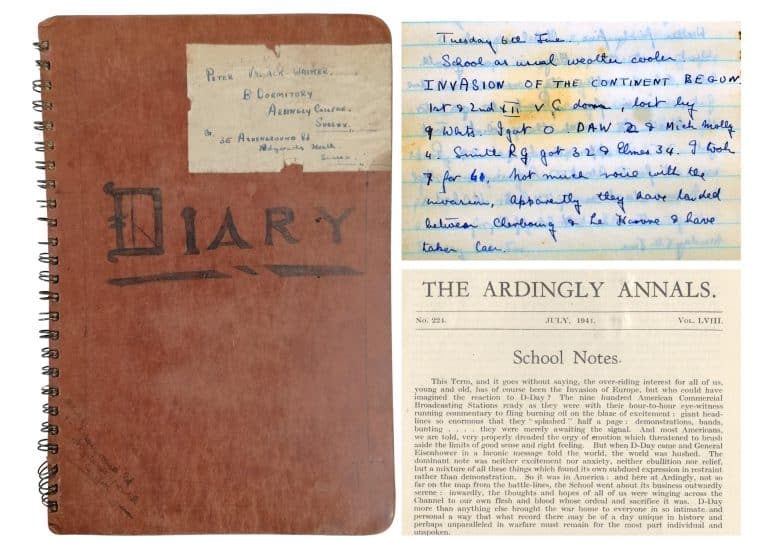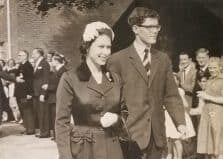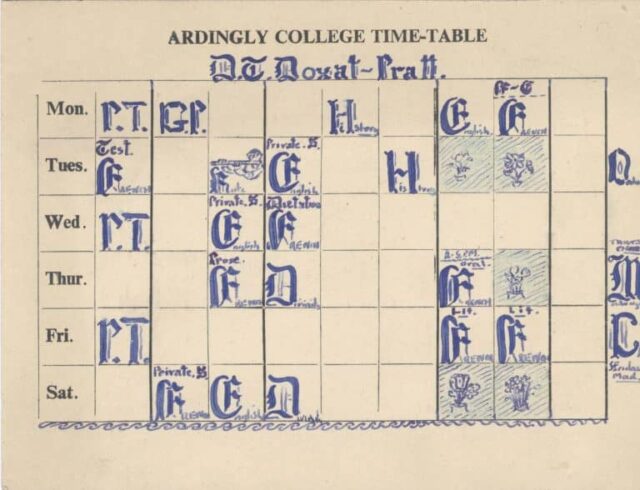
On 6 June 1944, more than 150,000 Allied troops landed on the beaches of Normandy. It was a major turning point in the war: the start of the operation that would ultimately lead to the liberation of Europe. 80 years on, we’re looking at two records in the College Archive that tell us how Ardingly reacted to D-Day: Peter Walker’s (B 1942-44) diary and the July 1944 Annals.
During WWII, Headmaster E C Crosse was determined to keep the College open. While it wasn’t quite business as usual – all windows were covered with blackout paper; prefects had special “fire duties”; the College’s Land Army produced over 100 tons of potatoes; and the College buildings were taken over by General Montgomery for a tactical exercise in December 1941 – Crosse was determined that his pupils would have as normal a school experience as possible.
Peter Walker’s diary – kindly given to the College Archive by his son, Paul Walker (Hilton 1977), in 2021 – certainly suggests that Crosse succeeded. It’s a wonderful account of the day-to-day life of an Ardingly College student in the 1940s. Peter religiously records the weather and the day’s sporting achievements, and even lessons and schoolwork get the odd mention (as do girls!). There is surprisingly little mention of the war, but it’s clear that it was a constant backdrop to his day-to-day life.

Peter Walker, photographed whilst doing national service, 1946 – 1949.
While the goings-on at Ardingly may have been more immediately relevant to the teenaged Peter Walker, the significance of D-Day was very much felt. The entry for 6 June 1944, like all of his diary entries, begins with a weather report – “School as usual weather cooler” – before proclaiming in all capitals, “INVASION OF THE CONTINENT BEGUN.” Peter immediately goes on to describe – in detail – the cricket match he’d played that day, finishing with “not much noise with the invasion, apparently they have landed between Cherbourg & Le Havre & have taken Caen.” This juxtaposition of school and war can be found throughout Peter’s diary (for more about the diary, see the article in the 2021 Ardinian).
The editorial in the July 1944 Annals brings home this contrast between daily life at Ardingly and the news of D-Day, with a piece of writing at once brimming with emotion and yet carefully contained: “here at Ardingly, not so far on the map from the battle-lines, the School went about its business outwardly serene: inwardly, the thoughts and hopes of all of us were winging across the Channel to our own flesh and blood whose ordeal and sacrifice it was. D-Day more than anything else brought the war home to everyone in so intimate and personal a way that what record there may be of a day unique in history and perhaps unparalleled in warfare must remain for the most part individual and unspoken.”


